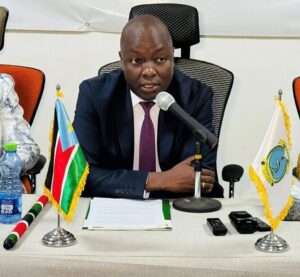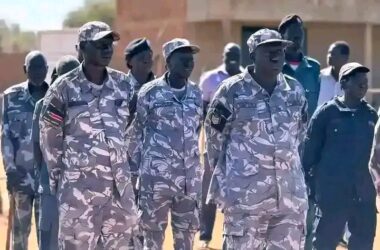
By Alan Clement
Northern Bahr el Ghazal has adopted a landmark set of resolutions as the region’s first commissioners’ forum concluded on Friday August 22nd, 2025.
The resolutions are aimed at transforming governance, infrastructure, and public services across the State.
The five-day gathering brought together county commissioners, municipal mayors, state ministers, religious leaders, traditional authorities, and partners. It was convened under the framework of the Revitalized National Development Strategy and in line with resolutions from the national Governors’ Forum.
At the close of deliberations, participants agreed to institutionalize the Commissioners’ Forum as an annual event, held ahead of the Governors’ Forum and backed by national authorities and development partners.
The forum pledged to enforce the Local Government Act, curb the uncontrolled creation of new chieftainships, and clearly define the roles of chiefs and judges through a review of customary laws.
Anti-corruption efforts were prioritized, with pledges to empower oversight bodies, conduct timely audits, and promote public accountability. Law enforcement agencies will increase patrols in urban areas, while government institutions will receive capacity-building support to improve service delivery.
Environmental protection also featured prominently, with a compulsory state-wide tree planting campaign launched to combat desertification. Unregulated tree cutting and bush burning were banned, and violators will face strict penalties. Public health initiatives will promote latrine use and sanitation awareness, while the state government will attract investment in agriculture, sanitation, electricity, and waste management.
The resolutions also include reviewing tax policies for fairer revenue sharing between counties and the state, enforcing transparent recruitment processes, protecting local workers, and ensuring fair pay in foreign-owned businesses. Plans were outlined to expand vocational training and promote modern farming techniques, including ox ploughing and drought-resistant crops.
The delegates also committed to complete Northern Bahr El Ghazal University, construct major highways and bridges, and establish urban water supply systems beginning in Aweil Town. Communities are expected to contribute materials to fence key public institutions, including the university and state cemetery.
Reforms on land administration will address malpractice and double allotment, harmonize registration fees, and engage traditional leaders in urban planning to prevent conflict. Teachers will benefit from improved salaries and regular training while communities will be involved in managing schools and health facilities to foster ownership and accountability.
The forum reaffirmed free education, expanded access for vulnerable children and persons with disabilities, and pledged enforcement of the 35% women’s affirmative action quota. Delegates also agreed to step up campaigns against youth violence, drug abuse, gender-based violence, and child exploitation.
Additionally, the resolutions called for harsher penalties for cattle theft, support for commercial farming through access to tools and loans, and regulation of NGOs under relevant ministries. Cultural revival was encouraged through support for traditional dance groups, and municipal councils were tasked with contracting independent companies for garbage collection. Sleeping in public markets was prohibited, and social media defamation will be prosecuted under national law.
The outcomes will be incorporated into state and county annual plans, with bi-annual progress reviews and civil society engagement in monitoring.
The forum concluded with a unified call to action: “We reaffirm our unity, collective responsibility, and commitment to inclusive development,” read the final communiqué signed by Hon. Gabriel Deng Yel, Hon. Bol Akoon Akoon, and Hon. Omer Khalifa Uchalla.
The forum, organized as part of the implementation of Resolution 26 of the 8th Governors’ Forum, was fully funded by the state government with technical support from development partners.
While officiating the closure of the forum, Governor Simon Ober Mawut urged officials to prioritize service delivery in their areas. He also called for accountability and transparency in leadership. “We must lead our institutions with a renewed commitment to effective service delivery,” he said.




